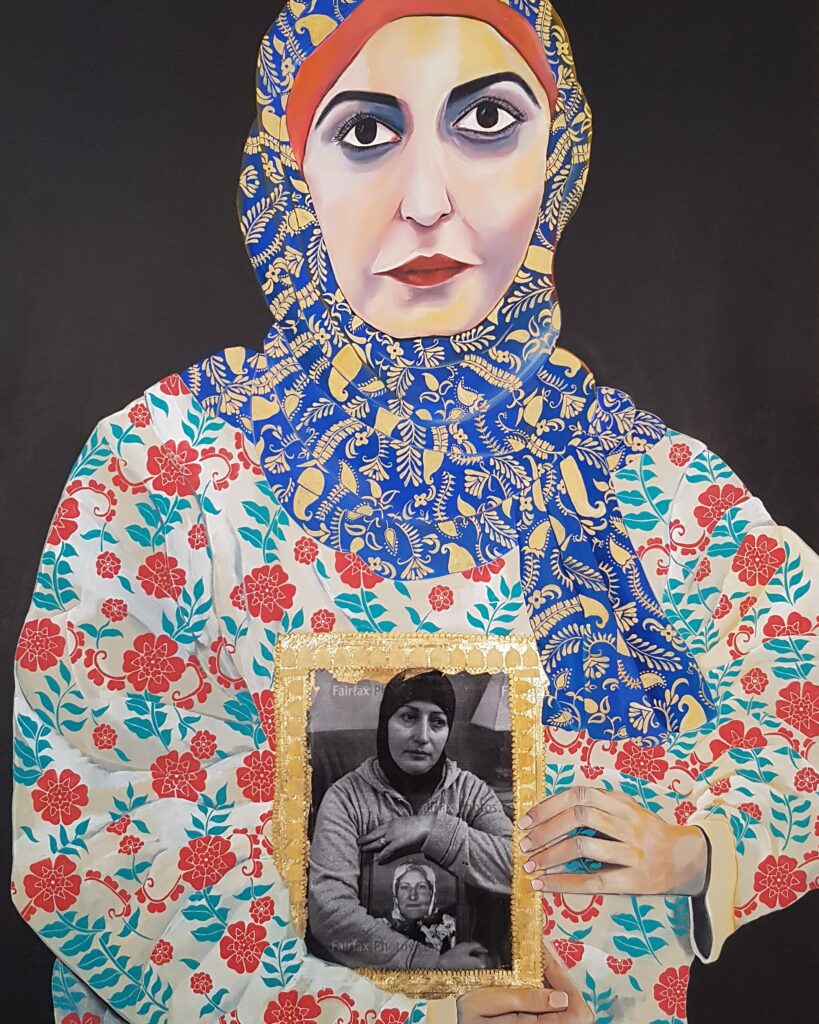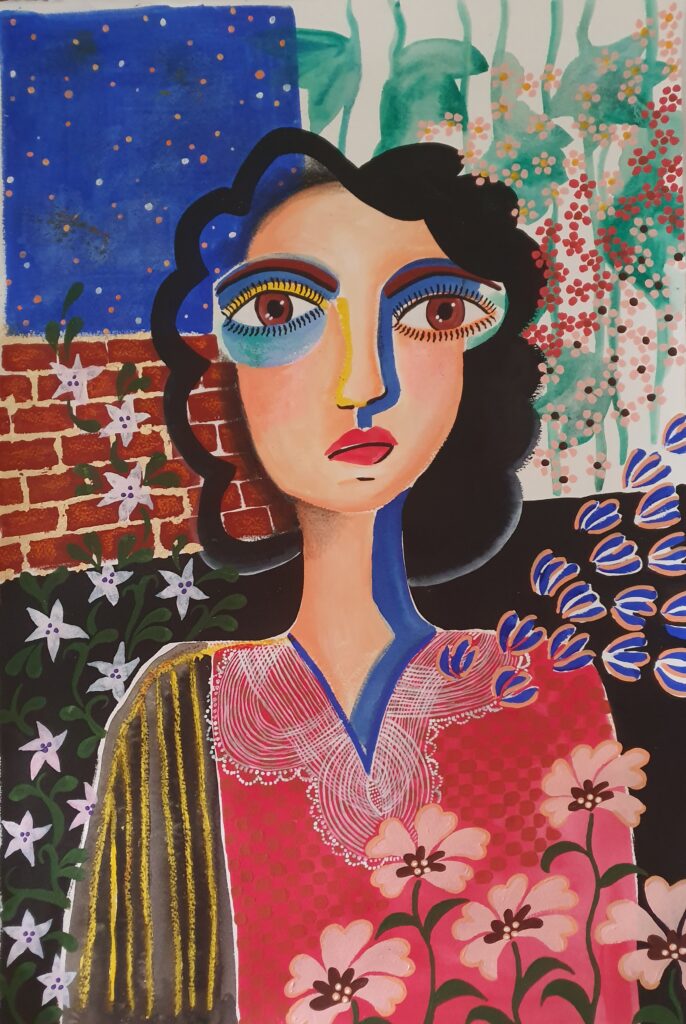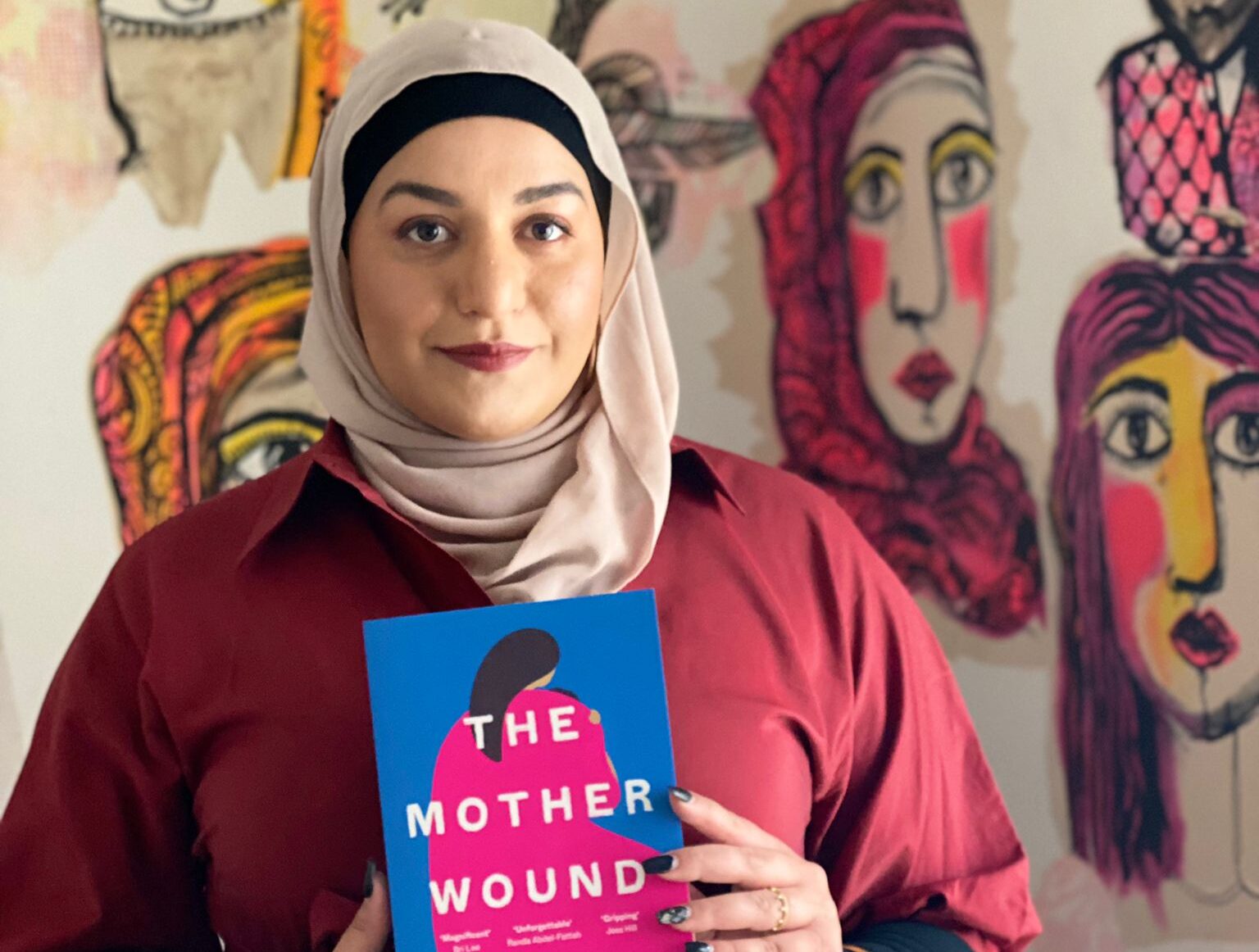After two long years of the global COVID-19 pandemic, so many of us find ourselves tired and lacking energy for even basic tasks. Facing a new year does not fill us with the joy of possibility as it may once have done. Where, then, do we find hope?
In this uplifting summer series, Ginger Gorman talks to six extraordinary women about how they found hope in unexpected places. This series was first written for HerCanberra and is republished here with full permission.
Content notification: This story contains discussion of gendered family violence.
These days Amani Haydar, 33, calls herself a lawyer-turned-artist. But the truth is, her journey to become a painter is nearly incomprehensible.
Back in 2015, Amani was madly in love, newly married and glowing in her fifth month of pregnancy. Soon, she’d take maternity leave from her commercial law gig and delight in getting to know her first child. Or that was the plan.
Then, Amani’s father brutally murdered her mother, Salwa Haydar. It was a story that shocked the nation and made newspaper headlines over and over again.
“It wasn’t until I experienced the huge trauma of losing my mum while I was pregnant, that I began to think about…my creative practice in a totally different way. And I started to think, well, ‘Do I really want to be back in courtrooms’?”
Through her father’s trial, Amani and her siblings spent so much time in courtrooms, reliving the details of their mum’s murder. They went through the agonising process of giving evidence, following the rules of an unbending justice system.
To make matters worse, the sisters were faced with the judgment of their dad’s family, who believed they should be forgiving. As a way of finding solace, Amani found herself painting.
“Each day, I found that the thing that I looked forward to most was that when my children went to bed, I would get out my art supplies. And I would just paint whatever came to my mind and look at ideas online and in books, and just fill my head with inspiration and techniques,” she recalls.
“When you’re in the creative process, and then there are no rules, there’s no outside scrutiny. You get to exercise your agency in a way that you don’t really get in any other spaces.”
“I was experiencing so much pressure at the time. And one of the definitive experiences of trauma is that you feel a total lack of control over your surroundings over the things that are happening to you. Between the murder and the trial was a two year wait. That’s a long time to feel completely out of control and to feel that your life had been turned upside down.”

Amani Haydar’s Archibald Prize shortlisted work ‘Insert Headline Here’. Courtesy of the artist.
Amani says that after the murder, art gave her “a sense of confidence.”
“It was it was a bubble. And I took my time with it. And I felt that it allowed me to begin processing a lot of things that I wasn’t able to put into words yet,” she says.
Despite Amani winning art prizes all through primary school and high school, she never previously considered painting as a career because society indicated art was “wasting time.”
Wistfully, Amani notes: “I always loved art. I always found peace and comfort [in art], even since I was a kid. When I was being creative, and it allowed me to feel like I had control over something—to feel mindful and really calm and exercise my intuition.”
Amani’s parents—especially her Dad—pushed her towards academic study and pursuing a ‘traditional’ profession: “I had a responsibility to parents as the eldest daughter. They had migrated from Lebanon and come to Australia, and I had responsibility to live up to their expectations and make something of myself.”
This, and her interest in human rights, was why she became a lawyer. But once her mum had been taken from her, Amani’s perspective changed. Art became not just a vocation, but a lifeline.
“From about halfway through 2017, I started recovery process, doing deeper counselling, thinking about the future making plans.”
“And I remember sitting down one evening and re-imagining what I wanted the next few years of my life to look like. Art had become so important to me that it didn’t feel like it could just recede into the background again,” Amani recounts.
She decided to conquer her imposter syndrome and enter the famed Archibald Prize. (And luckily, she did, because her work got shortlisted!).
“I didn’t even have a decent easel at the time, two small kids wandering around in the background. And I had hadn’t refined my process to the point where I felt 100% confident that I’d get it done,” Amani recollects with a laugh.
Amani’s stunning self-portrait depicts a haunted face, framed in a floral hijab. In her hands she holds a black and white photograph of her mum, also wearing a hijab. Her mum is in deep grief, holding a photograph of Amani’s grandmother after was she killed in southern Lebanon by an Israeli airstrike in 2006.
“These are the two women who have been most formative and influential in my life.”
“The portrait is sort of a commentary on intergenerational trauma on the different layers of violence that women experience, whether it’s state violence, or interpersonal violence, and how that’s all interconnected.”
“Now I’ve got kids, how do I put a stop to this? How do I create safety down the track? How do I create a sense of optimism, despite everything that’s happened? How do we escape this cycle?”
Reflecting on the idea of hope, Amani says: “The colours and the patterns are inspired by the types of motifs that you would see on a mosque, for example, or in Turkish ceramics. I wanted to tie that in, because that really strongly associates with continuity and hope for me.”

Girl in Garden by Amani Haydar. Courtesy of the artist.
Please note: Feature image of Amani with her award-winning book “The Mother Wound.” Courtesy of the artist.
- This article first appeared on HerCanberra. Read the original here.
BroadAgenda is a proud partner of HerCanberra. Everything you need to know about Canberra, one destination.

Ginger Gorman is a fearless and multi award-winning social justice journalist and feminist. Ginger’s bestselling book, Troll Hunting,came out in 2019. Since then, she’s been in demand both nationally and globally as an expert on cyberhate and the real-life harm predator trolling can do. She's also the editor of BroadAgenda and gender editor at HerCanberra. Ginger hosts the popular "Seriously Social" podcast for the Academy of the Social Sciences in Australia. Follow her on Twitter.





